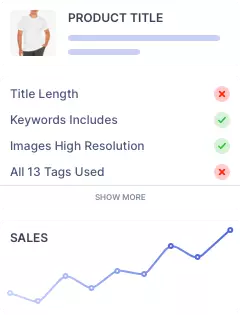What Is the Importance of Marketplace SEO?
Boost your sales and reach more customers with effective SEO for the marketplace. Learn the importance of optimizing your online store for search engines using the best SEO marketplace strategy.

What Exactly Is Marketplace SEO and How Can It Be Utilized to Enhance Your Platform’s Sales?
Marketplace SEO, also known as SEO for marketplaces, is a crucial aspect of the success of an e-commerce platform. A marketplace is a platform where multiple vendors sell their products and services. With the increasing competition in the digital world, optimizing your marketplace for search engines can make a big difference in attracting new customers, boosting sales, and, ultimately, increasing your revenue.
How Can We Define Marketplace SEO?
Marketplace SEO is a type of search engine optimization that focuses on optimizing a marketplace platform and its listings to improve visibility and search rankings on search engines like Google. It is a set of tactics and strategies aimed at improving the organic search visibility of a marketplace and its sellers, increasing traffic, and ultimately driving more conversions.
What Is the Importance of the Marketplace?
Marketplaces are open online spaces where customers can look for various product choices at a single location. These marketplaces offer a more effortless shopping experience. It provides benefits for both the user and the business.
How SEO Works With Search Engines
Search engines like Google are there to help searchers on the web. Google sends bots to discover and read pages on the internet. Google collects the information. In other words, SEO helps you ensure search engines can crawl and index your site efficiently.
Identify your marketplace, which can be an excellent match for what someone is looking for. Understand how you can create content that ranks high on search results pages.
Tips to Optimize Marketplace SEO
1. Keywords Research
Keyword research is the most important aspect of optimizing and it helps you identify those keywords for your target audience. By targeting the right keywords, you can increase your website online visibility.
Here are some tips for optimizing your keyword research:
1. Start with a brainstorming session: Brainstorm a list of keywords related to your marketplace and its services.
2. Use tools of keyword research: Several online tools can help you for your marketplace and aid in finding the exact targeted keywords.
3. Consider keyword intent: When researching keywords, consider the intent behind each search.
4. Long-tail keywords are very important: Long-tail keywords are made up of usually three or more words. These keywords have a lower search volume, but they can result in higher conversions as they refer to highly specific searches.
5. Use keyword modifiers: Keyword modifiers, such as “best,” “cheap,” or “near me,” can help you target specific types of searchers. By incorporating such modifiers in keywords, you can attract the right audience.
6. Competitors’s monitoring: Check your competitors’ keywords and see their ranking keywords. Use keyword research tools and use them to further strengthen your keyword strategy.
7. Use a mix of broad and specific keywords: Broad keywords have a high search volume but are often too competitive to rank for. Specific keywords have lower search volume but provide higher conversions.
8. Keyword-rich titles: Use target keywords in titles and meta descriptions as well. These elements are crucial for improving your visibility in search engine results and should be optimized for both search engines and users.
9. Addition of keywords into content: Make sure to include keywords in your content. But avoid keyword stuffing. Instead, aim for a natural, organic use of keywords in your content. Update your keywords regularly. Keywords can change over time as search trends and user behavior evolves. Regularly update your keywords to ensure that you’re targeting the most relevant phrases for your audience.
2. On-Page SEO
On-page optimization is an important aspect of optimizing your marketplace SEO, as it involves making changes to your website content and its ranking in search engine results pages. Here are some tips for optimizing your marketplace’s on-page elements:
1. Optimize your title tags: Title tags are the main text that appears in the search engine results for your pages. They should be concise as well.
2. Optimize your meta descriptions: Meta descriptions briefly summarize your page’s content and must length should be around 155 characters.
3. Header tags : H1, H2, and H3 tags help to structure your content for search engines to understand and rank it.
4. Images optimization: Use descriptive file names and alt tags, as this will improve the visibility of your images in search engine results, reduce the file size to improve load times.
5. URLs Optimization: URLs must be clear and concise. It should include your target keywords to rank. Avoid using long, complex URLs that are difficult to read and remember.
6. Make your site mobile-friendly: With the increasing number of internet users, it’s crucial to have a mobile-friendly site. This means using responsive design, optimizing your images and videos for mobile devices, and ensuring your site is fast and easy to navigate on smaller screens.
3. Product Listing Optimization
Product listing optimization is the process of improving the visibility and credibility of a product on a marketplace, such as Amazon or eBay. It involves using keywords, high-quality images, detailed descriptions, and customer reviews to attract potential buyers and increase conversions. Optimizing your product listing can increase visibility and potential sales. Proper product listing optimization can help increase the chances of your product being seen by the right audience and ultimately drive sales growth for your business.
It is essential to keep in mind the buyer’s journey when creating your list. Concentrate on your target audience’s needs and preferences. That way you can succeed at showcasing how ideal your product is for what they have in mind.
4. User Experience
There are several ways to enhance the user experience in an SEO marketplace:
1. Clear website design: Your website must have a clean design that makes it easy for users to find what they’re looking for.
2. User-friendly search functionality: Provide a search function that allows users to quickly and easily find the information they need. This includes auto-suggestions, filters, and the ability to search by keyword.
3. High-quality product descriptions: Provide detailed and accurate descriptions of each product or service to help users make informed decisions.
4. Customer reviews about your service: Encourage customers to leave reviews for their purchased products. This helps other users make decisions to buy your service or not.
5. Fast customer service: Respond promptly and provide friendly support to your customers.
6. Payment methods: Provide a secure payment system to your customers.
5. Link Building
Link building involves acquiring backlinks from other websites to your own. Backlinks are links from other sites that help to establish your site’s authority in search engine. Some strategies for building links in the SEO marketplace are here for you:
1. Broken link building: Search for broken links on websites in your niche and offer a replacement link to a relevant page on your site.
2. Content creation: Create high-quality and shareable content that other websites want to link as well.
3. Influencer outreach: Reach out to influencers in your niche and see if they would be willing to share your content or link to your site in exchange for exposure or other incentives.
The Right Time to Start SEO of Marketplace
The ideal time to start thinking about SEO: As early as possible! This is because having a strong foundation in terms of site quality and information architecture can greatly reduce the workload in the future. However, if you are a marketplace, it may be wise to hold off on a major investment in SEO once you have built a strong initial supply. A study by Lenny Rachitsky found that most marketplaces focus on driving demand through SEO only after building a high-quality supply.
Michael Caldwell, the founder of GigMasters and Petworks, waited until he had built a strong initial supply before starting to focus on driving demand. He suggests that while it is possible to start SEO later, it is advisable to keep SEO expertise in mind when building your team.
In conclusion, marketplace SEO plays a significant role in the success of business for any website. It helps businesses to rank higher and increase online visibility and sales. Marketplace SEO involves optimizing product listings, improving the user experience on a website, and using relevant keywords to attract customers. With the ever-growing competition in the online marketplace, it is essential for businesses to focus on marketplace SEO to stay ahead of their competitors and establish a strong online presence. By using Roketfy’s free plan, you can increase brand awareness and ultimately achieve business goals.




